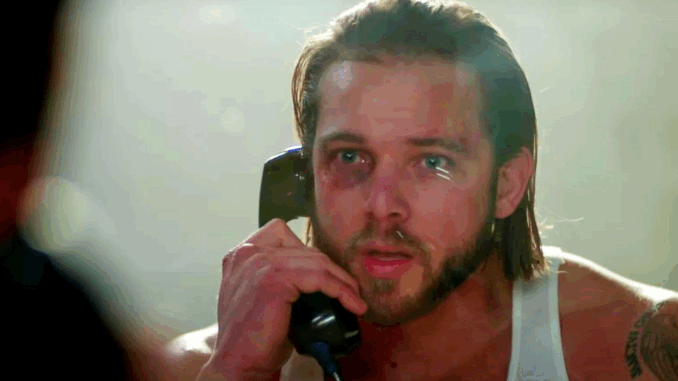
Family is the heartbeat of Fire Country, and at the core of its emotional intensity lies a relationship as volatile as the wildfires they fight: Vince Leone and Bode Donovan. This father-son duo is defined not by shared warmth or easy connection, but by years of disappointment, miscommunication, and unspoken grief.
Yet, through the flames, this relationship emerges as one of the most layered, heartbreaking, and ultimately hopeful storylines in the series. It’s a powerful meditation on what it means to be a father—and what it means to be a son, especially in a world where masculinity is often equated with stoicism and control.
Duty Over Emotion: Vince Leone’s Burden
Vince Leone isn’t your typical TV dad. As Cal Fire’s division chief, he’s composed, commanding, and fiercely committed to protecting his team and his town. But beneath the uniform lies a man deeply fractured by guilt and emotional restraint.
Vince has spent years trying to balance his professional duty with his personal failures, and nowhere is that tension more visible than in his relationship with Bode. As a father, Vince failed to reach his son when it mattered most. As a boss, he now has to lead that same son into deadly situations.
This dual role becomes a psychological minefield. Vince can’t always separate his badge from his blood, and the result is a love that feels conditional, hesitant, and heavy with regret.
The Son Who Wants to Be Seen

Bode, for his part, doesn’t just want forgiveness—he wants recognition. Not as a convict. Not as a disappointment. But as a man who’s trying to change.
Their scenes together are rarely soft. They’re filled with tension, interrupted apologies, and defensive distance. But in every heated exchange, there’s an undercurrent of desperation—two men who love each other deeply but don’t know how to say it.
Bode’s struggle isn’t just about proving himself to his crew or his community. At its core, it’s about proving himself to his father, a man he both admires and resents. The need for paternal validation is palpable—and painfully relatable.
Fire as Legacy
For Vince and Bode, fire is more than a threat—it’s a legacy. Vince has dedicated his life to firefighting, and Bode has inherited that life in the most ironic way: not by choice, but by consequence.
The firehouse becomes a surrogate family, but also a stage for reliving old wounds. Vince watches his son risk his life the way he once did—except Bode is doing it to atone, not to lead. That reversal creates friction. Bode’s courage reminds Vince of the cost of his own ambition, while Vince’s authority feels, at times, like an obstacle to Bode’s redemption.
And yet, fire also becomes their common language. In scenes where words fail, action speaks. Bode follows Vince into burning forests. Vince trusts Bode with critical decisions. Through these moments, we see sparks of understanding.
The Wound That Doesn’t Heal
At the heart of their estrangement lies a shared tragedy: the death of Riley, Bode’s sister. Her loss fractured the family, and neither father nor son ever recovered emotionally. Instead of leaning on each other, they drifted apart, each blaming themselves and, at times, each other.
That trauma lingers in every scene between them. Riley is a ghost they both carry—one that keeps them bonded, even in silence.
Fire Country doesn’t rush their healing. It allows them to be angry, ashamed, and afraid. It captures the reality that grief doesn’t end, it evolves. And through it all, it insists on one radical idea: that reconciliation is still possible, even when it’s long overdue.
Redefining Fatherhood
What makes this dynamic especially powerful is how Fire Country deconstructs traditional masculinity. Vince, for all his strength, is emotionally stunted. He believes showing vulnerability is a liability. Bode, on the other hand, is learning—through pain and failure—that real strength lies in softness.
Together, they represent two generations of men navigating what it means to love without control, to lead without ego, and to repair what’s been broken without needing to be perfect.
Their evolution is subtle but powerful. A nod. A rare compliment. A brief moment of trust. These small gestures are seismic shifts in a relationship built on decades of avoidance.
Why Their Story Matters
In a television landscape full of found families and romantic subplots, Fire Country stands out for its deep commitment to intergenerational healing. Vince and Bode’s story resonates because it reflects a truth many know: that fathers and sons often struggle to connect—not out of malice, but out of fear and pride.
The show’s brilliance lies in its refusal to offer easy closure. Instead, it offers something better: progress. The slow, imperfect climb toward understanding. The kind of love that doesn’t erase the past, but refuses to be defined by it.
In Fire Country, fatherhood isn’t a title—it’s a choice. And redemption, for both men, comes not in a single conversation but in showing up again and again, even when it’s hard.
